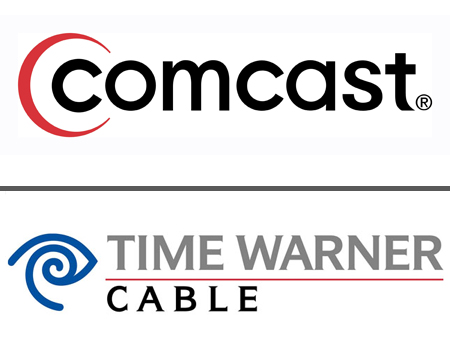What Comcast-TWC Means For Local Broadcasters

The smarter way to stay on top of broadcasting and cable industry. Sign up below
You are now subscribed
Your newsletter sign-up was successful
What does the potential Comcast acquisition of Time Warner Cable mean for the local broadcast business? While some on the stations side fear the clout of an even larger Comcast—it’s funny, B&C asked “Is Comcast Too Big?” in a cover story, way back in 2005—others say it’s encouraging to have a cable giant in the arena who also happens to be a significant broadcaster.
David Bank, managing director, global media equity research, RBC Capital Markets, spoke of broadcasters likely breathing “a sigh of relief” that it was Comcast that won the bidding for TWC, not the front runner Charter. With its acquisition of NBCUniversal, Comcast of course took over a broadcast network, along with a big batch of cable nets, to go with its regional sports nets and other content-rich outlets. “Comcast is more aligned with the content suppliers than virtually any other player out there that can change the landscape,” Bank said.
Time Warner Cable has a major presence in the top two DMAs, New York and L.A., as well as Dallas, Austin, Louisville, Green Bay, Milwaukee, upstate New York and much of the Carolinas. New York should be “a fascinating case study,” one GM in a Comcast market told me, while a broadcast exec with a station in New York I spoke with expected it would be business as usual if and when Comcast takes over TWC. “They take on a ton of subs, but it doesn’t make us change the way we do business,” said the nonplussed station vet.
Virtually no one I spoke with for this story would talk on the record, a nod to Comcast’s might, and because it’s hardly a done deal.
The New York Times mentioned local broadcasters as “potentially impacted” in terms of retrans by the massive merger. “A bigger Comcast could have more leverage to negotiate lower rates with these groups,” said the Times. “And while local broadcast groups would like to expand, they are largely constrained by media consolidation rules that prevent companies from owning more than one local television station in a given market.”
Michael Nathanson of MoffettNathanson Research added: “The local station owners are asking: How are we limited to owning this number of stations in a market, when the biggest markets in the country have only one, now larger, cable operator?”
The Los Angeles Times, meanwhile, posited that CBS' distribution deal with Time Warner Cable could be altered by a Comcast takeover of the cable provider. "According to people familiar with the deal, it does not include provisions protecting all the terms of the pact should Time Warner Cable be acquired by a distributor with a sweeter arrangement."
The smarter way to stay on top of broadcasting and cable industry. Sign up below
Comcast of course has to play nice with its broadcast partners based on provisions worked out when it acquired NBCUniversal. The NBC affiliates board fought hard for a "firewall" in 2011 between retransmission consent negotiations and affiliate renewals. The FCC approved the deal with a long list of conditions, some related to localism and fair competition. “The Commission is establishing for rival multichannel video programming distributors (MVPDs) an improved commercial arbitration process for resolving disputes about prices, terms, and conditions for licensing Comcast-NBCU's video programming,” went one FCC condition.
The Department of Justice followed that with its own long list of conditions.
“They’ve got to be squeaky clean,” says one group president. “Washington will be all over them."
Just as it was with NBCUniversal, it will be a long time before the Comcast-TWC deal gets the regulatory OK, if it ever does. But some other fun things to ponder, at least for the broadcasters, include the Time Warner Cable local news channels such as NY1 and News 14 in the Carolinas. TWC announced last year it was rebranding the channels to get the Time Warner Cable name in there; we’ll see if that changes if and when Comcast takes over.
Michael Malone is content director at B+C and Multichannel News. He joined B+C in 2005 and has covered network programming, including entertainment, news and sports on broadcast, cable and streaming; and local broadcast television, including writing the "Local News Close-Up" market profiles. He also hosted the podcasts "Busted Pilot" and "Series Business." His journalism has also appeared in The New York Times, The L.A. Times, The Boston Globe and New York magazine.

